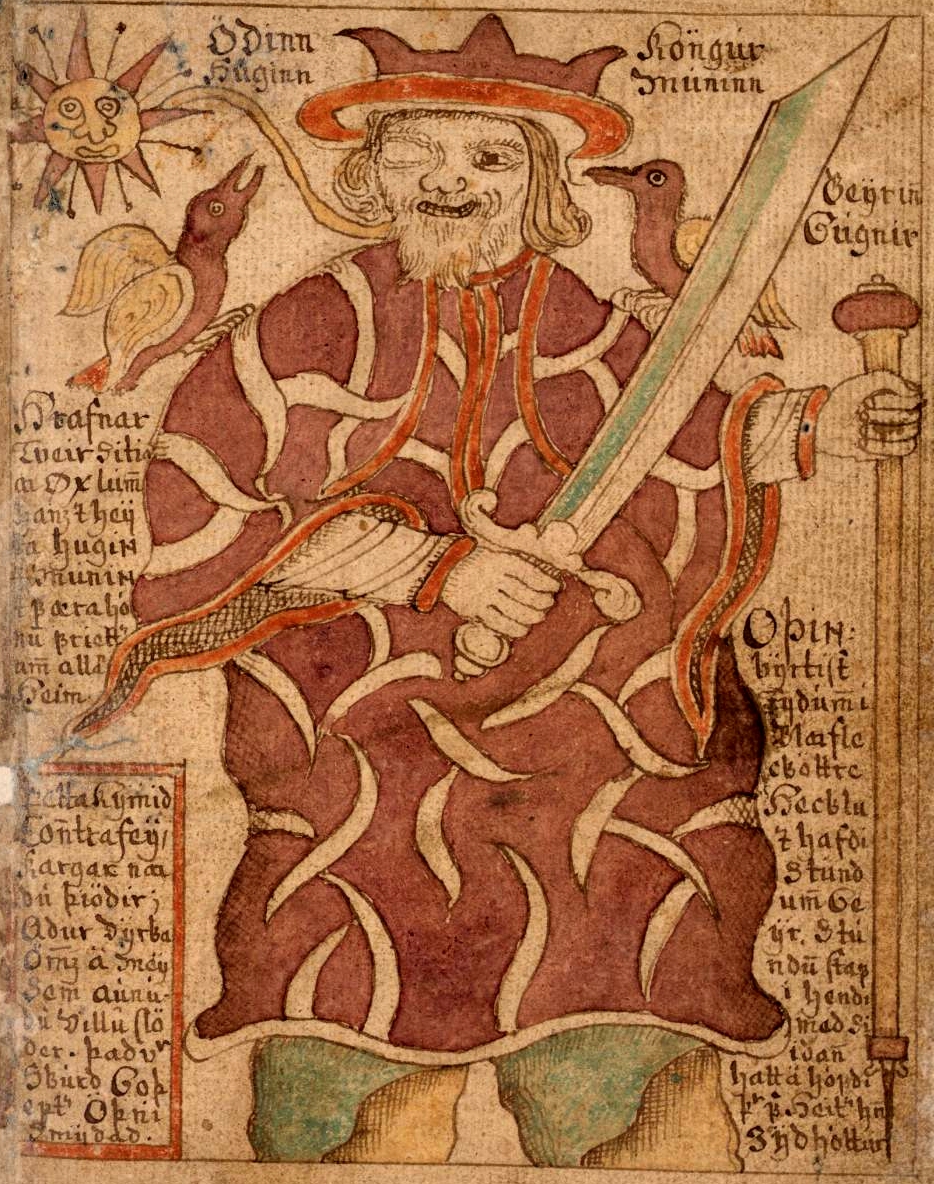| Name ▲▼ | Origin ▲▼ | Description ▲▼ |
|---|---|---|
| God name "AESIR" | Icelandic / Nordic | The major race of sky gods in Norse religion. The twelve Aesir gods are headed by OTHIN, the All-Father and probably are, in part, derived from a Germanic pantheon established in prehistory. The Aesir follow a common pattern whereby cultures establish a senior pantheon of great gods which usually number seven or twelve.... |
| Goddess name "Abnoba" | Roman / Celtic / European | Forest and river goddess. Known locally from the Black Forest region of Germany. The name Avon, åśśociated with many rivers, derives from her name.... |
| God name "Aesir" | Germanic | Pantheon of the gods norse / germanic |
| Spirit name "Ahnfrau" | German | An ancestress whose spirit appears to give warning of an approaching disaster or death. German |
| Deities name "Alcis" | Germanic / possibly Icelandic / Nordic | Unknown status. The Alcis are twin deities (brothers) known only as sons of the sky gods. From Germanic times we have a La Tene urn with pictures of paired men on horseback and linked by a wooden beam. Tacitus describes the worship of twin gods by the Naharvali tribe, their priests dressed in effeminate costume (see also the Phrygian deity ATTIS). They may have been worshiped in Forest sanctuaries along the northern coast of Europe.... |
| Goddess name "Alruna-wife" | German | The Alrunes were the lares or penates of the ancient Romans. An Alruna-wife was the household goddess of a German family. An Alruna-maiden is a household maiden goddess. |
| Spirit name "Alte" | German | The Old One A field-spirit in human form. German |
| Goddess name "Aufaniae" | Celtic | A collective name for a group of Celtic mother goddesses worshipped throughout Celtic Europe. They are known only from symbolical inscriptions and they appear to have been found mainly in the German Rhineland. Celtic |
"Bap or Baphomet" | French | An imaginary idol or symbol, which the Templars were said to employ in their mysterious rites. The word is a corruption of Mahomet. The image of Baphomet was romanticized during the nineteenth century by the German antiquarian Josef von Hammer-Purgstall. |
| Goddess name "Beda" | Germanic | Goddess who, along with the Alaisiagae sisters and Fimmilena and Mars Thingsus was popular among the Tubantes. |
| Goddess name "Bertha" | German | Goddess the spinning-wheel principally, and of the household as dependent on it, in behalf of which and its economical management she is often harsh to idle spinners; at her festival thrift is the rule. South German |
"Biersel" | German | A Kobold who lives in the cellar, drinks beer and cleans the jugs and bottles. German Torgau District |
| Spirit name "Bullkater" | German | A field-spirit resembling a tom-cat. German |
"Bumann" | German | A bogeyman of an undefined nature. German |
| Spirit name "Buschweiber" | German | Forest-spirits aka "Wild-maidens". German. |
| Spirit name "Butze" | German | A household spirit. German |
| God name "Camulos" | Britain | 'the powerful one' God of war. Also worshipped in Germany. Britain |
"Caspar" | German | A huntsman who sold himself to Zamiel, the Black Huntsman. The night before the expiration of his lease of life he bargained for three years' respite on condition of bringing Max into the power of the evil one. Zamiel replied, "To-morrow either he or you." On the day appointed for the trial-shot, Caspar places himself in a tree. Max is told by the prince to aim at a dove. The dove flies to the tree where Caspar is concealed. Max shoots at the dove, but kills Caspar, and Zamiel comes to carry off his victim. German |
Table of Gods
Your guide to the World gods, spirits,
demons and legendary monsters

German Mythology Names
These names occur in Germanic mythologies and legends.
